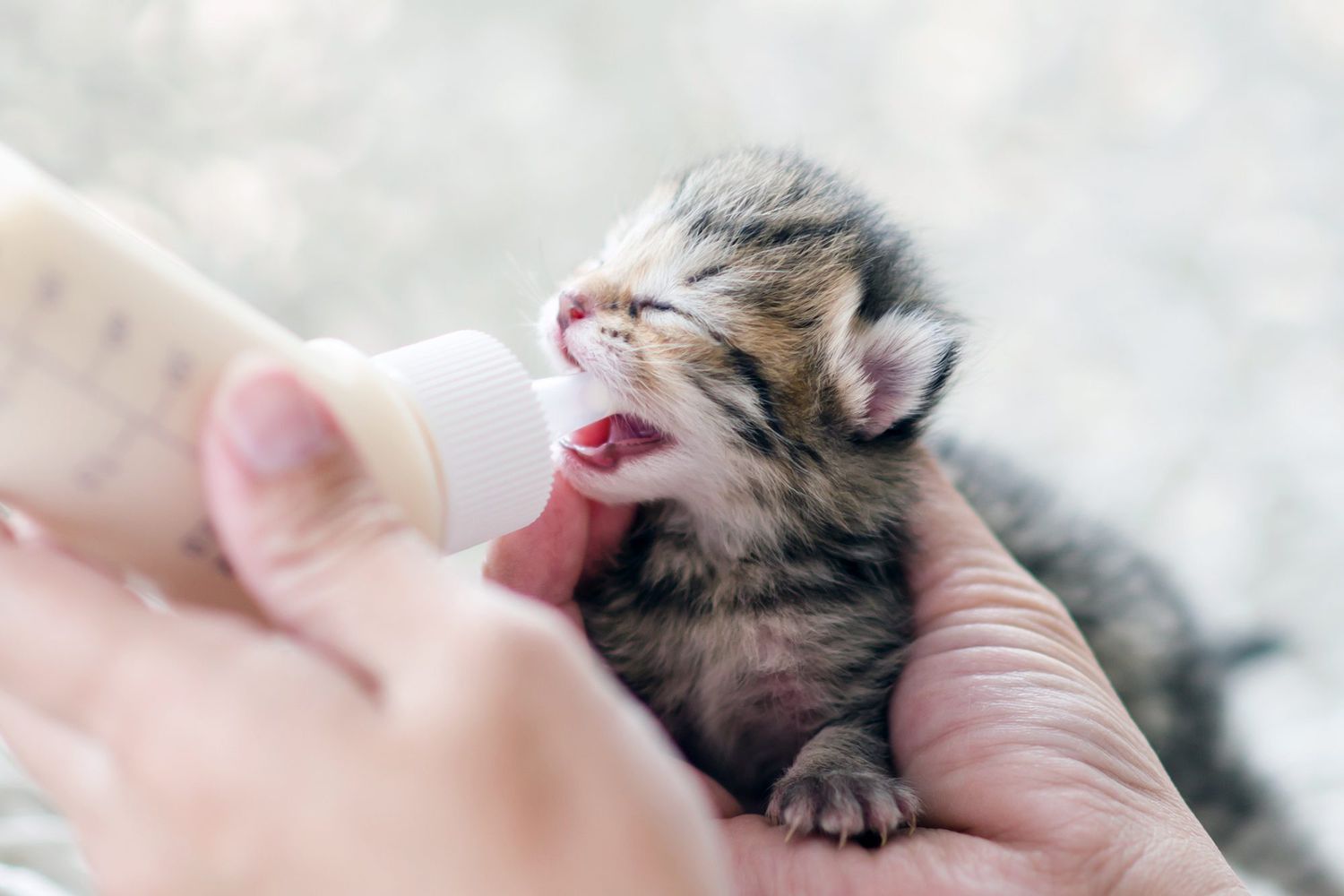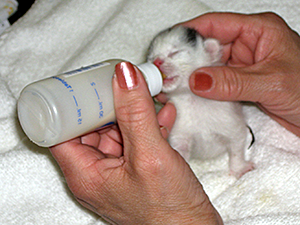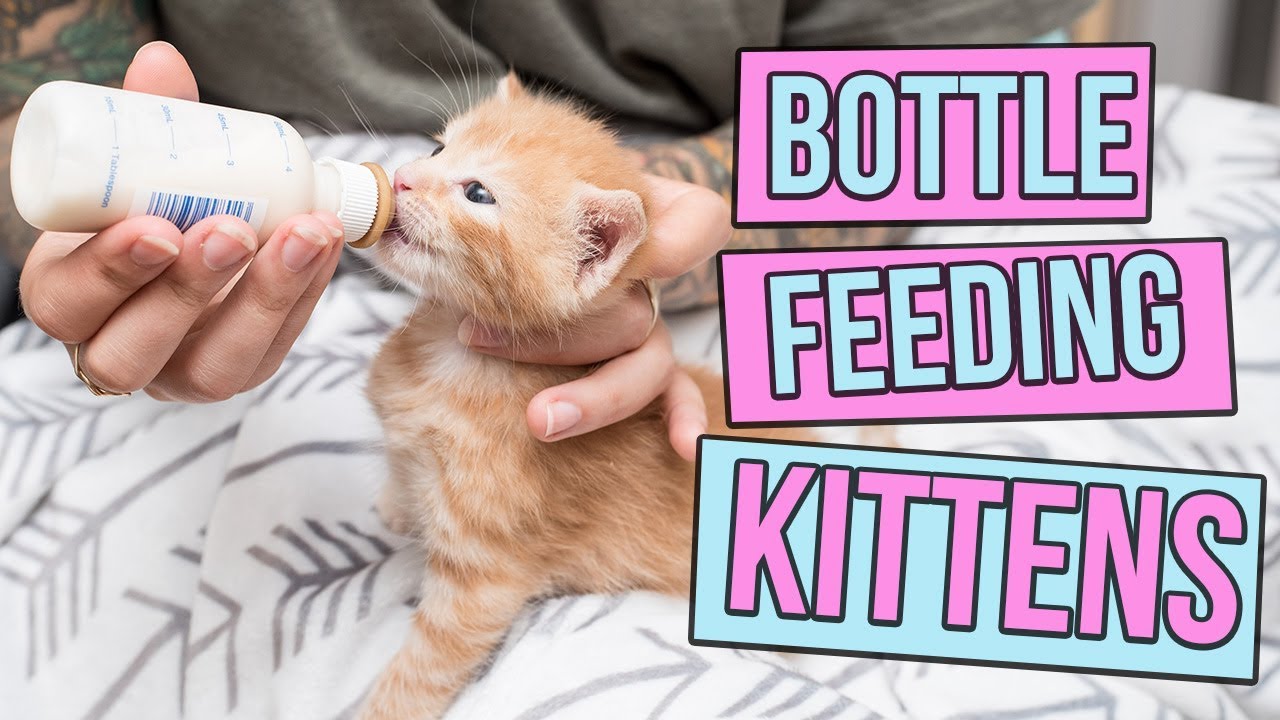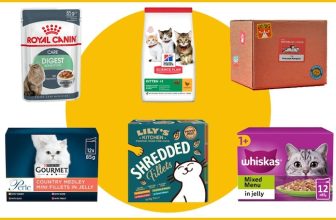How Do You Feed a Newborn Kitten: Essential Tips for Caregivers

Feeding a newborn kitten requires care and attention. Kittens need special nutrition to grow strong and healthy.
Newborn kittens are fragile and depend on their mothers for food. If the mother is not available, you must step in. Feeding them properly is crucial for their survival. They need the right formula, specific feeding techniques, and a warm environment.
Knowing how to feed them can make a big difference. It can help them thrive and develop properly. This guide will cover the essentials for feeding newborn kittens. You will learn about the right tools, the best formulas, and tips for feeding them safely. With the right approach, you can ensure these tiny creatures get the care they need.

Credit: www.animalalliancenyc.org
Introduction To Newborn Kitten Care
Feeding a newborn kitten is very important. Proper feeding helps them grow strong and healthy. Kittens need special milk. Their mom’s milk is best. If mom is not around, use kitten formula. Never give cow’s milk. It can make them sick.
The role of carer is crucial. Carers must feed kittens every two hours. Use a small bottle or dropper. Keep the kitten warm during feeding. This helps them feel safe. Always check the milk temperature. It should be warm, not hot.
Watch for signs of hunger. Kitties will cry or move around. Make sure to clean the bottle after each use. This keeps the milk fresh and safe. Proper care leads to happy, healthy kittens.
Identifying A Kitten’s Feeding Needs
Newborn kittens need proper care. Age and development help you understand their needs. Kittens under two weeks need kitten milk replacer. This is important for their health. They cannot drink regular milk.
Check their weight regularly. Healthy kittens gain about 10 grams daily. If they do not gain weight, seek help. Kittens start eating solid food at about four weeks. Introduce a wet kitten food gradually.
Feeding should happen every 2-3 hours for newborns. As they grow, feeding can change. By four weeks, you can feed them every 4-6 hours. Always provide fresh water for hydration.
Choosing The Right Milk Replacement
Choosing the right milk for a kitten is very important. Commercial kitten formula is the best choice. It has the right nutrients. Homemade recipes can work, but they may lack essential nutrients. Always consult a vet before trying homemade options.
Many people think cow’s milk is okay. This is a common myth. Cow’s milk can upset a kitten’s stomach. It may lead to diarrhoea and dehydration. Stick to specially designed formulas. They help kittens grow strong and healthy.
Use caution with any milk replacement. Always check for quality. Look for products labelled for kittens. This ensures they get what they need.

How Do You Feed a Newborn Kitten
Credit: www.dailypaws.com
Preparing The Bottle And Formula
To feed a newborn kitten, start with clean equipment. Sterilise the bottle and nipple. Boil them in water for 5-10 minutes. This kills germs. Let them cool down before use.
Next, prepare the kitten formula. Use a commercial formula made for kittens. Do not use cow’s milk. Follow the instructions on the package. Mix the formula with warm water. The mixture should be smooth and not too thick.
Check the temperature of the formula. It should feel warm but not hot. Test it on your wrist. Fill the bottle and attach the nipple. Make sure the flow is not too fast. Kittens need small amounts at a time.
Mastering The Feeding Technique
Feeding a newborn kitten requires careful attention. Bottle positioning is very important. Hold the bottle horizontally. This helps the kitten drink easily.
Check the nipple size. It should allow milk to flow slowly. Too fast can choke the kitten. Observe the kitten’s suckling. If it is sucking hard, the bottle is good.
Watch for swallowing sounds. This shows the kitten is drinking well. If you hear no sounds, stop feeding. Check the bottle again. Adjust the position if needed.
Feeding a newborn kitten takes time. Be patient and gentle. Create a calm space for feeding. This helps the kitten feel safe.
Frequency And Amount Of Feedings
Newborn kittens need to eat often. Feed them every 2 to 3 hours. Each feeding should be about 1 teaspoon of formula. Kittens grow fast. Their needs change quickly.
| Age | Feeding Frequency | Amount per Feeding |
|---|---|---|
| 1-2 weeks | Every 2-3 hours | 1 tsp |
| 3-4 weeks | Every 3-4 hours | 2-3 tsp |
| 5-6 weeks | Every 4-6 hours | 4-6 tsp |
Keep a feeding chart. This helps track when and how much you feed. Adjust portions as kittens grow. They will eat more as they get older. Check their weight weekly. Make sure they are gaining weight.
Troubleshooting Common Feeding Issues
Some kittens refuse to eat. This can be stressful. Try warming the milk. Warm milk can smell better. Kittens may like the taste more. Use a small siringe to feed them. This can help if they are weak.
Watch for signs of health issues. Kittens may be sick if they won’t eat. Look for dehydration. Check if their gums are dry. If they refuse food for more than a day, seek help.
Keep the feeding area calm. Loud noises can scare them. Gently hold them while feeding. This can make them feel safe. Always use kitten formula. Never give cow’s milk. It can upset their stomach.
Transitioning To Solid Foods
Watch for signs of readiness in your kitten. Kittens usually show interest in food around four weeks old. This is a great time to start weaning. Start with a mix of kitten formula and soft food.
Introduce solids slowly. Begin with wet food that is easy to eat. Gradually add more solid food. Keep an eye on their reaction. If they enjoy it, continue to increase solid food.
Give your kitten time to adjust. Each kitten grows at its own pace. Be patient and supportive. They will learn to enjoy new foods soon.
Maintaining Proper Hydration
Keeping your kitten hydrated is very important. Kittens often need fresh water daily. Provide clean water in a shallow dish. Check the water every few hours. Replace it if it looks dirty.
Signs of dehydration in kittens include:
- Dry mouth and gums
- Less energy than usual
- Sunken eyes
- Skin that does not spring back
- Loss of appetite
If you notice these signs, give your kitten water right away. Always keep an eye on their water intake. This helps them stay healthy.
Supporting Overall Kitten Health
Feeding a newborn kitten requires a clean environment. Always wash your hands before handling the kitten or food. Use a clean bowl for feeding. This helps prevent germs.
Check the feeding area often. Make sure it is free from dirt and bacteria. Clean up spills immediately. Kids are very sensitive to germs.
Regular vet visits are important. Vaccinations help protect kittens from diseases. Keep a schedule for check-ups. It ensures your kitten stays healthy and strong.
Credit: www.youtube.com
Frequently Asked Questions
How Often Should I Feed A Newborn Kitten?
Newborn kittens should be fed every 2 to 3 hours. Their tiny stomachs can only hold small amounts of food. Feeding them frequently ensures they receive enough nutrients for growth. As they grow, you can gradually increase the time between feedings.
What Formula Is Best For Newborn Kittens?
A high-quality kitten milk replacer is ideal for newborns. Avoid cow’s milk, as it can upset their stomachs. Look for formulas specifically designed for kittens, as they provide the necessary nutrients. Always follow the instructions on the packaging for proper mixing and feeding guidelines.
Can I Use A Regular Bottle For Feeding?
Using a regular baby bottle can work, but it’s not ideal. Kittens have different sucking reflexes than humans. A specialised kitten feeding bottle provides a better fit. Ensure the nipple size is appropriate to prevent choking or aspiration.
How Do I Know If A Kitten Is Full?
A full kitten will typically stop suckling and may fall asleep. You can also check their belly; it should feel slightly rounded, not distended. Monitor their weight regularly to ensure they are gaining appropriately. If you have concerns, consult a veterinarian for advice.
Conclusion
Feeding a newborn kitten is a special job. It requires care and attention. Choose the right formula for their age. Use a small bottle for easy feeding. Feed them every 2-3 hours, even at night. Keep them warm and comfortable during feeding.
Monitor their weight to ensure they are growing. With patience and love, you can help them thrive. Your efforts will lead to a healthy, happy kitten. Enjoy this rewarding experience as they grow and become part of your life.






[…] water. This innate tendency can lead to improved hydration and general wellness. A rushing water cat bowl can recreate the experience of drinking from a […]
[…] Wet kitten foods offer great hydration benefits. Kittens need water for good health. Canned food has more moisture than dry food. This helps keep your kitten hydrated. […]